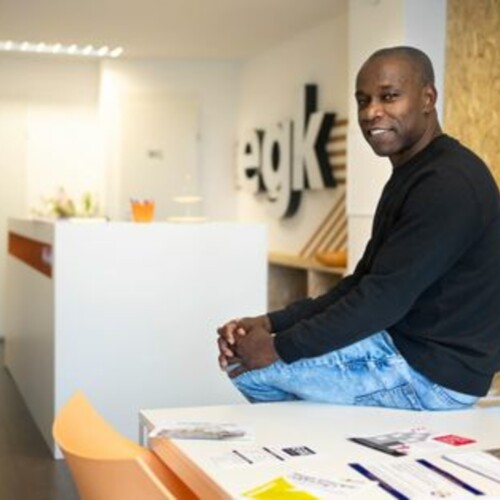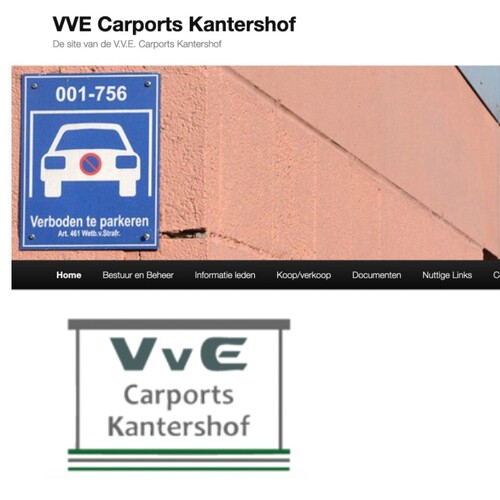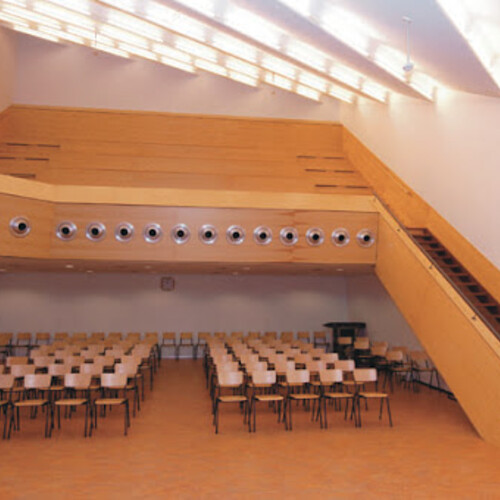To ensure that the good intentions of researchers align with the wishes and needs of the people in the neighborhood, the Energy Lab Southeast has drafted a manifesto. This document informs new students and researchers about the fundamental principles of the Energy Lab Southeast when conducting practical research. The five basic principles are reciprocity, social commitment, transparency, collaboration, and diligence. The manifesto was developed in collaboration with residents, the municipality, and other stakeholders with an interest in realizing the energy transition in Amsterdam Southeast.
MANIFESTO FOR LIVING LAB RESEARCH
Working together on a social energy transition in Southeast
Energy transition is an urgent social task in the Netherlands. Urban areas such as Amsterdam Southeast are an important place to accelerate the energy transition in a socially just manner. Energy transition is socially just when it is made accessible to all residents of the district. There is a lot of social housing in Amsterdam Southeast, much of which is outdated and poorly insulated. With rising energy prices, it is extra important to involve these residents and make the energy transition possible for them. It is also important for transformations of private or mixed ownership to be done in a socially just manner.
The Energie Lab Zuidoost was established in 2021 to accelerate this social energy transition in Amsterdam Zuidoost with the help of the knowledge and experience of all partners involved. The partners in the Energy Lab work according to the living lab methodology together with other partners in the neighbourhood. The Energy Lab contributes directly to the realisation of the social energy transition in Southeast and at the same time provides knowledge development for developments later or elsewhere.
“From the very beginning, Southeast was a colorful district. A few decades later, the district is more colorful than ever. More diverse than most Dutch neighborhoods in large cities, where newcomers are welcome. It has always remained that way. More than 170 nationalities live together here.”
“35% of children grow up in poverty (...) besides inequality of opportunity, Southeast has other challenges. Many residents have feelings of insecurity”
“For us as an Alliance, the strength of these strong residents was an important source of inspiration. We emphatically want to stand beside them. The pioneering spirit of those days still blows around in this part of the city. That's what makes this part of town so unique. And we want to preserve that!”
- Master Plan Southeast 2040 (Alliance Southeast, 2021)
In general, there is a big gap between the good intentions of professionals and what people in the neighbourhood want. In that light, with this manifesto we want to inform new students and researchers about the basic principles we use within the Energie Lab Zuidoost when conducting practical research. The principles build on the 'Urban Living Lab Way of Working'.
The manifesto was prepared in collaboration with residents, municipality and other stakeholders who have an interest in realising the energy transition in Amsterdam Southeast.
Conditions for conducting research on energy transition in Southeast
Beneath you will find the conditions for conducting research in the context of Amsterdam Zuidoost, accompanied with reflective questions. Please answer these questions as part of hand-in Step 3: The
Learning Card, which you will present near the end of your research.
Reciprocity
What practical value does your research add to the energy transition in Southeast?
In Living Labs, all participants - citizens, government, business and science - see and experience added value at the lab. Scientists conduct living lab research to gather and publish data as well as to change practice. Reciprocity means that Energy Lab researchers - in consultation with involved parties - determine in advance what added value they can deliver to the parties in Southeast. As a researcher, you are aware of the expectations and needs of different target groups, such as age and cultural background. For example, as a researcher you can facilitate interventions that support the local energy transition, so that it does not remain research. Before the start of the research, agreements are made about this.
Social engagement
What social engagement do you perform in Southeast besides your research?
One form of reciprocity is performing a small 'social service' in Southeast. It is common for students and researchers to contribute practically to the energy transition in Southeast in addition to their primary research activities. Examples include Energy Coaching, Quick Fix Brigade, help and advice to neighbourhood organisations and school education. The Energy Lab helps researchers find appropriate engagements.
Transparency
Are your research results accessible to everyone in Southeast?
Documentation of findings and reflections is crucial for sharing lessons. This can be done in a variety of ways, ranging from traditional reports to websites, blogs and videos. The design and outcomes of any research should be accessible to all stakeholders. Therefore, the research design and results should be shared via the Open Research page of the Energy Lab (and via other channels such as Wij Amsterdam) in a way that can be understood by as many people as possible. The requirements for accessible websites of the Dutch government will be followed. The Energy Lab organizes frequent meetings, at which researchers present the progress of their work and stakeholders (local residents/partners) can react.
Collaboration
Are you working with all relevant local partners in Southeast?
All Energy Lab researchers are of course open to collaboration with the other partners in the Energy Lab and other partners in Southeast. Co-creation of experiments and solutions is an important element of the living lab work. Research proposals, as far as grant guidelines allow, set aside funds for a local consultant. This is then included in the research team. This consultant ensures the connection to the needs of the neighbourhood.
Diligence
Are you cautious in your direct contacts with residents, entrepreneurs and media in Southeast?
A lot of research is taking place in Southeast, not only from the Energy Lab. There are also many municipal departments active in Southeast. Therefore, Energy Lab researchers are careful and cautious in approaching residents and entrepreneurs in Southeast directly or in talking to media. Moreover, this is always done in consultation with the local consultant or with municipal participants in the Energy Lab.
 Energielab Zuid Oost
Energielab Zuid Oost

